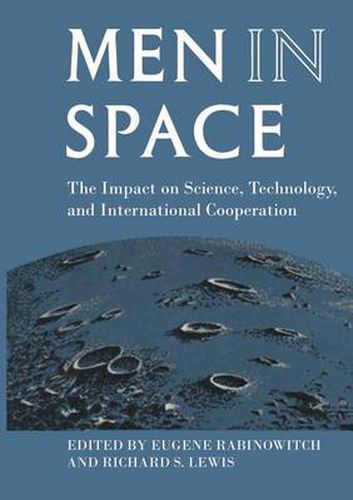Readings Newsletter
Become a Readings Member to make your shopping experience even easier.
Sign in or sign up for free!
You’re not far away from qualifying for FREE standard shipping within Australia
You’ve qualified for FREE standard shipping within Australia
The cart is loading…






This title is printed to order. This book may have been self-published. If so, we cannot guarantee the quality of the content. In the main most books will have gone through the editing process however some may not. We therefore suggest that you be aware of this before ordering this book. If in doubt check either the author or publisher’s details as we are unable to accept any returns unless they are faulty. Please contact us if you have any questions.
AFTER THE LUNAR LANDING Our concern in this volume is the impact upon science, technology and international cooperation of man’s emer gence from the cradle, the biosphere of Earth, to visit the surface of another planet. The editors invited experts in the physical and social sciences who had been think ing, talking and writing about space programs for a long time. Some had been critical of manned space flight, its motives and its costs. Some have been or are currently involved in Project Apollo. Some had not committed themselves to value judgments but were fascinated by probable results. In general, the authors regard the moon landing as a climactic event in man’s evolution. Sir Bernard Lovell is likely to have a cataclysmic effect on society suggests it and that an international effort should be mounted to send men to Mars in the 1980s. The question of how Project Apollo relates to a scheme of priorities which takes into account such needs as housing, health, pollution and the problems of urbaniza tion enters the discussion from several points of view. Eugene Rabinowitch suggests that Apollo may stimulate the development of a system of establishing national priorities in the application of the nation’s resources. Freeman Dyson, on the other hand, does not believe that ix PREFACE x any hierarchy of committees can devise an accepted order of priorities.
$9.00 standard shipping within Australia
FREE standard shipping within Australia for orders over $100.00
Express & International shipping calculated at checkout
This title is printed to order. This book may have been self-published. If so, we cannot guarantee the quality of the content. In the main most books will have gone through the editing process however some may not. We therefore suggest that you be aware of this before ordering this book. If in doubt check either the author or publisher’s details as we are unable to accept any returns unless they are faulty. Please contact us if you have any questions.
AFTER THE LUNAR LANDING Our concern in this volume is the impact upon science, technology and international cooperation of man’s emer gence from the cradle, the biosphere of Earth, to visit the surface of another planet. The editors invited experts in the physical and social sciences who had been think ing, talking and writing about space programs for a long time. Some had been critical of manned space flight, its motives and its costs. Some have been or are currently involved in Project Apollo. Some had not committed themselves to value judgments but were fascinated by probable results. In general, the authors regard the moon landing as a climactic event in man’s evolution. Sir Bernard Lovell is likely to have a cataclysmic effect on society suggests it and that an international effort should be mounted to send men to Mars in the 1980s. The question of how Project Apollo relates to a scheme of priorities which takes into account such needs as housing, health, pollution and the problems of urbaniza tion enters the discussion from several points of view. Eugene Rabinowitch suggests that Apollo may stimulate the development of a system of establishing national priorities in the application of the nation’s resources. Freeman Dyson, on the other hand, does not believe that ix PREFACE x any hierarchy of committees can devise an accepted order of priorities.